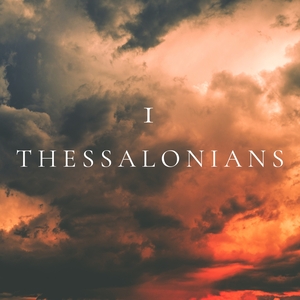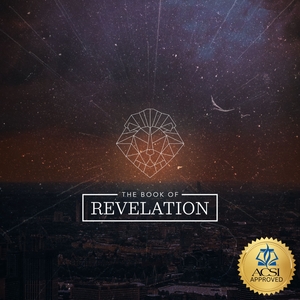Me han enseñado que el Rapto de la Iglesia ocurre en medio de la Tribulación antes de que la ira de Dios sea derramada en los Juicios de las Copas. ¿No está Pablo hablando de estos juicios cuando enseña en 1 Tesalonicenses 5:9 que el creyente no está destinado a "ira"?
El momento del arrebatamiento (o resurrección) de la iglesia es una cuestión muy debatida, pero que puede resolverse fácilmente a partir de las Escrituras. La fuente de nuestra confusión es sacar versículos y palabras de la Biblia fuera de contexto e ignorar todo el consejo de las Escrituras.
Para asegurarse de tener el contexto adecuado de las Escrituras sobre la cuestión del rapto, le recomendamos encarecidamente que lea nuestros artículos: Explicando el rapto , Qué trompeta anuncia el rapto y ¿Ocurrirá el rapto en Rosh Hashaná ? También le recomendamos que escuche nuestro curso completo de Apocalipsis , que le brindará el contexto completo y la explicación de esta pregunta y muchas más cuestiones asociadas con los eventos del fin de los tiempos.
Mientras tanto, la ira de la que habla Pablo en 1 Tesalonicenses no es una referencia específica a los Juicios de las Copas. Más bien, Pablo está hablando de la ira de toda tribulación. En 1 Tesalonicenses 5, Pablo consuela a la iglesia diciéndoles que no se perdieron la resurrección, como habían estado afirmando algunos falsos maestros. Aunque la iglesia estaba sufriendo una gran persecución a manos de los judíos y los romanos, su experiencia no fue la Tribulación como algunos temían.
1Tes. 5:9 Porque no nos ha puesto Dios para ira, sino para alcanzar salvación por medio de nuestro Señor Jesucristo,
1Tes. 5:10 quien murió por nosotros, para que, ya sea que estemos despiertos o dormidos, vivamos juntamente con él.
1Tes. 5:11 Por tanto, animaos unos a otros y edificaos unos a otros, como también vosotros lo estáis haciendo.
Pablo dice que la Iglesia no está designada para experimentar la ira de Dios. Quería decir que la Iglesia no debía temer que se habían perdido la resurrección y, por lo tanto, estaban experimentando la Tribulación. Pablo había enseñado a la Iglesia anteriormente que el Rapto debe preceder a la Tribulación, sin embargo, otros falsos maestros los habían convencido de que en ese momento estaban soportando la Tribulación. Por lo tanto, a la iglesia le preocupaba que la llegada de la Tribulación significara que se habían perdido la resurrección.
Pablo responde asegurando a la Iglesia que no están designados ni destinados a la ira, es decir, la ira de la tribulación. Por lo tanto, podían consolarse sabiendo que su resurrección aún estaba por suceder.
La clave para interpretar este pasaje correctamente es comprender que los siete años completos de la Tribulación se consideran la "ira de Dios". Los Juicios de las Copas son solo el mayor y final derramamiento de ira durante esos siete años, pero la ira de Dios es evidente en todos los juicios de la Tribulación, como nos enseña el Apocalipsis:
Apocalipsis 15:1 Entonces vi otra señal en el cielo, grande y maravillosa: siete ángeles que tenían siete plagas, que son las últimas, porque en ellas ha consumado la ira de Dios.
Note que los Juicios de las Copas son llamados "los últimos" porque "terminan" la ira de Dios en la Tribulación. No son la totalidad de la ira de Dios. Son el fin de la ira de Dios. De manera similar, encontramos incluso los primeros juicios de la Tribulación, los Juicios de los Sellos, llamados juicios de ira en el Apocalipsis:
Apocalipsis 6:17 porque ha llegado el gran día de su ira, ¿y quién podrá sostenerse en pie?”
Después del Juicio del Sexto Sello, la gente de la tierra declara que el gran día de la "ira" ha llegado sobre ellos. Claramente, la ira de Dios llega a la tierra mucho antes de que aparezcan los Juicios de las Copas. Los Juicios de las Copas son sólo el derramamiento final de Su ira.
Entonces, si Pablo dice que la Iglesia no está destinada (o designada) a experimentar ira en absoluto, entonces esto significa que no podemos experimentar ninguno de los juicios de la Tribulación. Es por eso que Pablo enseña que la venida del Señor por la Iglesia (es decir, el Rapto) nos rescata de esta ira venidera:
1º. 1:10 y esperar del cielo a su Hijo, a quien resucitó de los muertos, es decir, a Jesús, que nos libra de la ira venidera.
Este es uno de los muchos lugares donde encontramos las Escrituras que enseñan que la Iglesia no tiene nada que temer con respecto a la Tribulación. No es designado para la Iglesia, ya que lo es por razones completamente diferentes. Si desea saber por qué la Tribulación viene sobre la tierra (y a quién está destinada), lea nuestro artículo ¿Por qué la Tribulación ?







